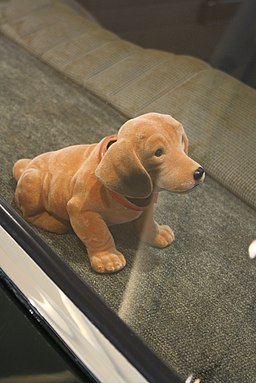Funny German words? Germans can actually be funny? Are you sure?
Germans are usually seen as very strict and sincere people. But that’s wrong! It probably is a misinterpretation of some other qualities attributed to Germans, such as discipline, punctuality and an obsession with details.
Some of these might be true, but being on time doesn’t mean you can’t have a laugh. (In fact, in comedy the timing of jokes is crucial!) Germany has a big comedy scene and a long tradition of political cabaret. And there’s many popular fairs like the Karneval in the Rhine area or the Octoberfest in Bavaria, where people really let their hair down.
(And sometimes, given enough alcohol, their lederhosen as well…)
But no matter how you perceive the German people, this article isn’t really about their talent for comedy and laughter. Instead it’s about the German language and some of the funniest German words we could think of. Any language contains words which are weird, cumbersome or are pronounced in a way that’s odd. So let’s get started and take a closer look at our list of funny words in German!
Table of Contents
- Silly German Names to call People
- Funny German Words about the Body
- Funny German Names for Animals
- Weird German Words about Things
- Funny German Words for doing Something
Silly German Names to call People
1. Gurkentruppe
Any idea what Germans mean when they talk about a “cucumber squad?” Cucumbers are the only vegetable that is eaten while still unripe. So a Gurkentruppe consists of members lacking any experience. Basically it’s a team of muppets or a bunch of losers, so it’s a term often used for sports teams who didn’t perform as expected.
2. Lulatsch
A Lulatsch means a very long and rather thin person, i.e. someone who’s described in English as a beanpole. Sometimes even exaggerated in the form of langer Lulatsch. (Lang meaning long, of course.)
3. Miesepeter
What exactly is a “wretched Peter“? You know this one colleague, who predicts a negative outcome for every idea or plan you come up with? Yes, that’s a Miesepeter! It’s a person who’s moody and likes to paint everything in black.
4. Quatschkopf
The balderdash head loves to talk nonsense. He’s full of weird ideas and – unfortunately – doesn’t hold back with telling you about them.
5. Rampensau
You may have a colleague who is a Rampensau. Many of us are quite the opposite. But what do Germans mean, when they call someone a “stage hog?”
They mean someone who thrives in the limelight. Someone who can get on stage and perform instantly. So most actors and singers fall into this category.
6. Schnarchnase
A “snoring nose” is anyone whose performance is far below average. As such he is closely related to the “Trantüte.” (see next entry)
7. Trantüte
The “bag of whale oil” is a dull-witted guy, who tends to think and move slowly and sluggish.
8. Weichei
The literal english translation is “soft egg” and it’s a term used to describe a wimp or sissy.
Looking for more colorful descriptions of weird people in the German language? Take a look at our list of funny german insults.
Funny German Words about the Body
1. Hüftgold
Hip gold is a rather nice description for the excess fat you’re carrying around your waistline and your hips. Sometimes the word is also used to describe the food which might lead to these extra pounds, like chocolate or cake.
2. Kummerspeck
Another term for overweight, but this time with a justification included. Clever Germans! Many people tend to eat when they feel lonely or depressed. The literal translation of “Kummerspeck” is “misery bacon” and and this German word describes the surplus weight gained by eating too much comfort food.
3. Sitzfleisch
Now, what on earth does a native speaker mean, when he’s speaking of “seat meat“? Now, when a Germans says, some has “seat meat” (or better “sitting meat“) he means, someone who is able to sit on his spot for a long time. That could mean guests you’d rather see leaving or in a business context, someone who doesn’t move from his position.
4. Splitterfasernackt
“Nackt” means naked, so what does “splinter fibre naked” mean? It’s actually a combination of two older expressions with the same meaning, “splitternackt” and “fasernackt“.
“Splinter naked” means naked like a piece of wood without it’s bark. And “fibre naked” means not wearing any clothes, of course. These two words were combined to describe someone stripped bare naked. Another funny thing about this expression is that you can hear it frequently, whereas the original two words are almost extinct.
5. Wonneproppen
Ok, you might get the impression I’m obsessed with obesity, but this is another funny German word about body fat. A “Wonneproppen” (or “pleasure plug“) describes a chubby person. Usually it’s either a small child which didn’t lose it’s baby fat yet. Or it might refer to a woman whose rounder parts are seen as rather attractive and cuddly.
Funny German Names for Animals
1. Innerer Schweinehund
OK, this interesting creature isn’t even a real animal. Your “inner pig dog” is the little monster inside you which stops you from hoovering, ironing your shirts or clearing out the garage. All these little tasks everyone has to do and no one really enjoys. And before you do them, you have to overcome your inner pig dog which wants you to stay on your couch and read funny blog posts instead.
2. Nilpferd
Ok, it does have four legs. And a head. And a bit of a tail. But whoever came up with the idea to call a “hippo” a nile horse, must have been short-sighted. Or a bit tipsy.
3. Schildkröte
Now, what kind of animal might a German mean when he talks about a “shield toad?” It’s a turtle! I get the shield bit, but toad?
4. Stubentiger
The official German word for cat is “Katze.” But another way to describe these friendly felines in German is “room tiger.” So, basically a tiger small enough to keep in your house.
Weird German Words about Things
1. Absacker
You’ve been out and about with your friends. You all had a good time, but now it’s time to go home or to your hotel and get some sleep. But on the way you spot this cosy looking little bar! And you persuade your friends to have one last drink…
This famous last drink is what Germans call an Absacker. In English, a “nightcap“.
2. Betthupferl
Originally Betthupferl meant a flea, something unexpected hopping around in your bed. Luckily, fleas are very rare in German beds nowadays, so the word got a new meaning. It describes the little chocolate or other sweets better hotels might put on your pillow. When you’re at home and not in a hotel, it means basically the same thing. A little snack or sweet you might indulge in before brushing your teeth and going to sleep.
3. Drahtesel
Did you go to work on a “wire donkey” today? That’s an informal expression for a bicycle, officially known as “Fahrrad“(Drive Wheel).
4. Ohrfeige
Do you like figs? They are sweet fruits and can be eaten fresh or dried.
But when a German offers you an “ear fig”, you should stay clear. The “Ohrfeige” is a slap in the face. The ear part of the word is obvious, but the linguists are still undecided whether “fig” stems from a swollen cheek (round like a fig) or from dutch “veeg” for a punch or slap.
5. Ohrwurm
Now, an “ear worm” sounds awful, don’t you think? Well, kind of…
You know that song you heard in the radio in the morning or the tune a colleague whistled in the office? And you can’t get that song out of your head, even if you find it really annoying? Now, that’s a piece of music Germans call an “ear worm”!
6. Schirmherr
The literal translation of “Schirmherr” is “Umbrella Gentleman.” But what does this gentleman do? Standing in front of a hotel, making sure guests stay dry when entering a taxi? Not quite. In the Medieval Period a Schirmherr meant a noble man shielding and protecting e.g. a monastery or other institution which was otherwise unarmed.
Nowadays Schirmherr means a patron, someone supporting a good cause, social institution or an event like an exhibition with his good name. Patrons are usually not paid for their involvement.
7. Tohuwabohu
You think I’m making these words up? Oh no, my dear! Just look it up in the Duden, the most popular German dictionary: Tohuwabohu.
Tohuwabohu means a mess or chaos. “Im Kinderzimmer herrscht ein einziges Tohuwabohu!” (There’s a total mess in the kid’s room!)
The word’s origin is in Biblical Hebrew (tohû wạ vohû), where it describes the desert and empty state of the world at the beginning of creation (Genesis).
But in German it usually doesn’t mean something being void, but too many objects in a small space instead. Much like my garden shed actually…

Ach guck mal / CC BY
8. Wackeldackel
Wow, that’s hardcore German, so to speak. You probably know the nodding Elvis dolls or the Hawaiian dancing dolls some people like to put on the dashboard in their car? Well, the “Wackeldackel” is the German version. In the 1960s and 1970s, Dackel (dachshunds or sausage dogs) were extremely popular in Germany. And many proud dog owners (or wannabes) also bought a plastic dog with a nodding head and put it in their car.
So, a Wackeldackel is a “waggle teckel“.
9. Zungenbrecher
The “tongue breaker” is a tongue twister or crackjaw. Something like “Brautkleid bleibt Brautkleid und Blaukraut bleibt Blaukraut” or “Max macht Wachsmaskenwachs, Wachsmaskenwachs macht Max.”
Funny German Words for doing Something
1. Rumeiern
To “egg around” means you’re moving around without any clear sense of direction. This might be on a road or more figuratively speaking, like when holding a speech.
2. Verklickern
“Da hat es bei mir bei Klick gemacht.” That’s one of the expressions Germans use, when they suddenly understand something they couldn’t grasp before. Literally, it clicked for them.
So, one of the verbs meaning to explain something to someone else is “zu verklickern.”
3. Verschlimmbessern
The verb “verbessern” means to improve. Whereas “verschlimmern” is the opposite, to make things worse. But what do Germans mean, when they combine the two verbs in the word “verschlimmbessern?” It means you try to enhance a situation, but achieve quite the opposite. Think of trying to put out a fire by pouring a liquid over it. Only to realize you’ve been pouring petrol into the flames…
4. Torschlusspanik haben
What kind of disorder is “closing gate panic,” you might wonder? Well, that’s the unflattering term Germans use to describe women who, after a certain age, are afraid of ending up alone and childless. That’s why they then marry the next best man. At least according to this cliché.
Ok, this concludes our list of fun German words for today. Did we miss any of your favorite funny German words? Let us know and we’ll gladly add them to our collection!





